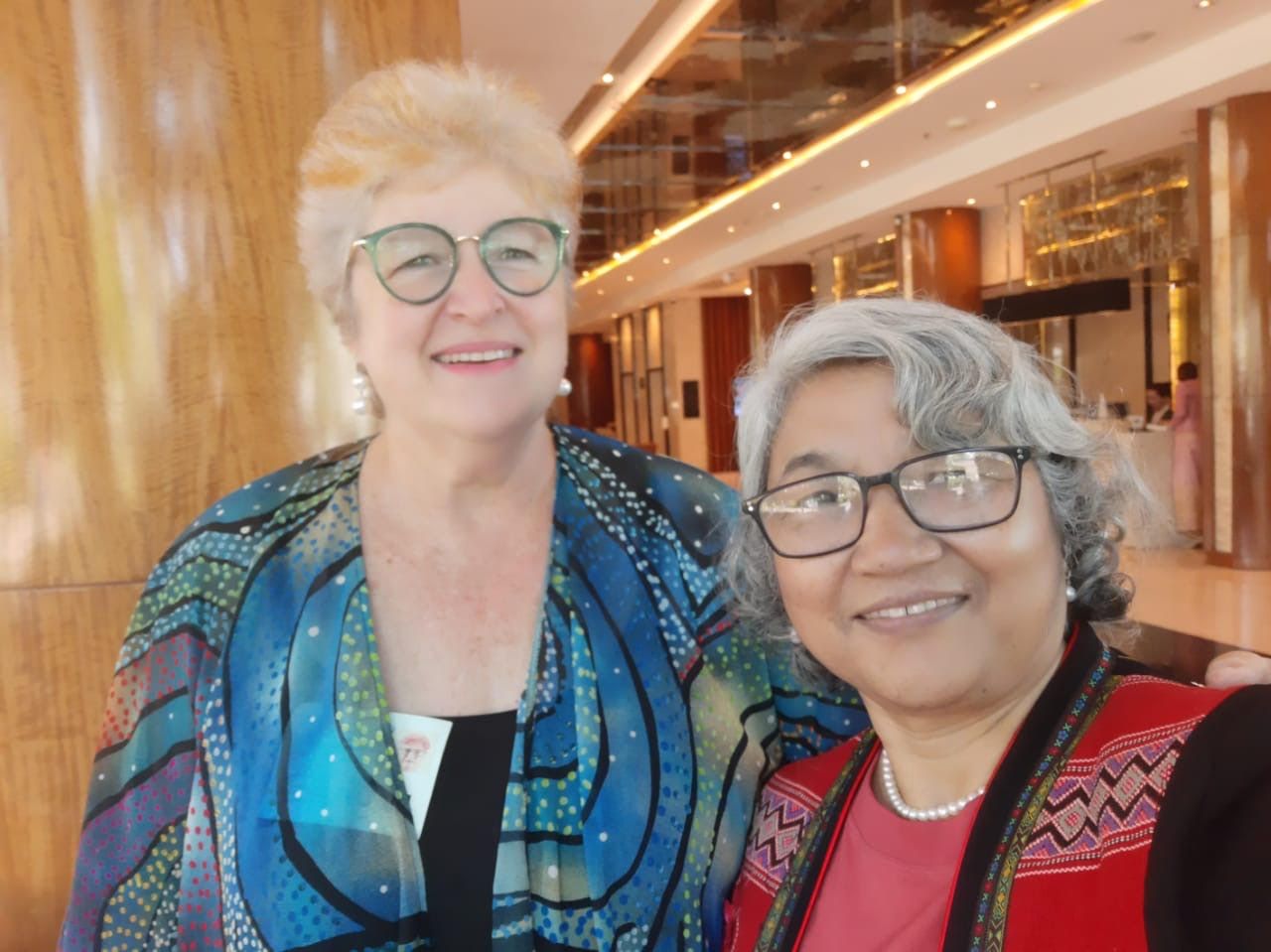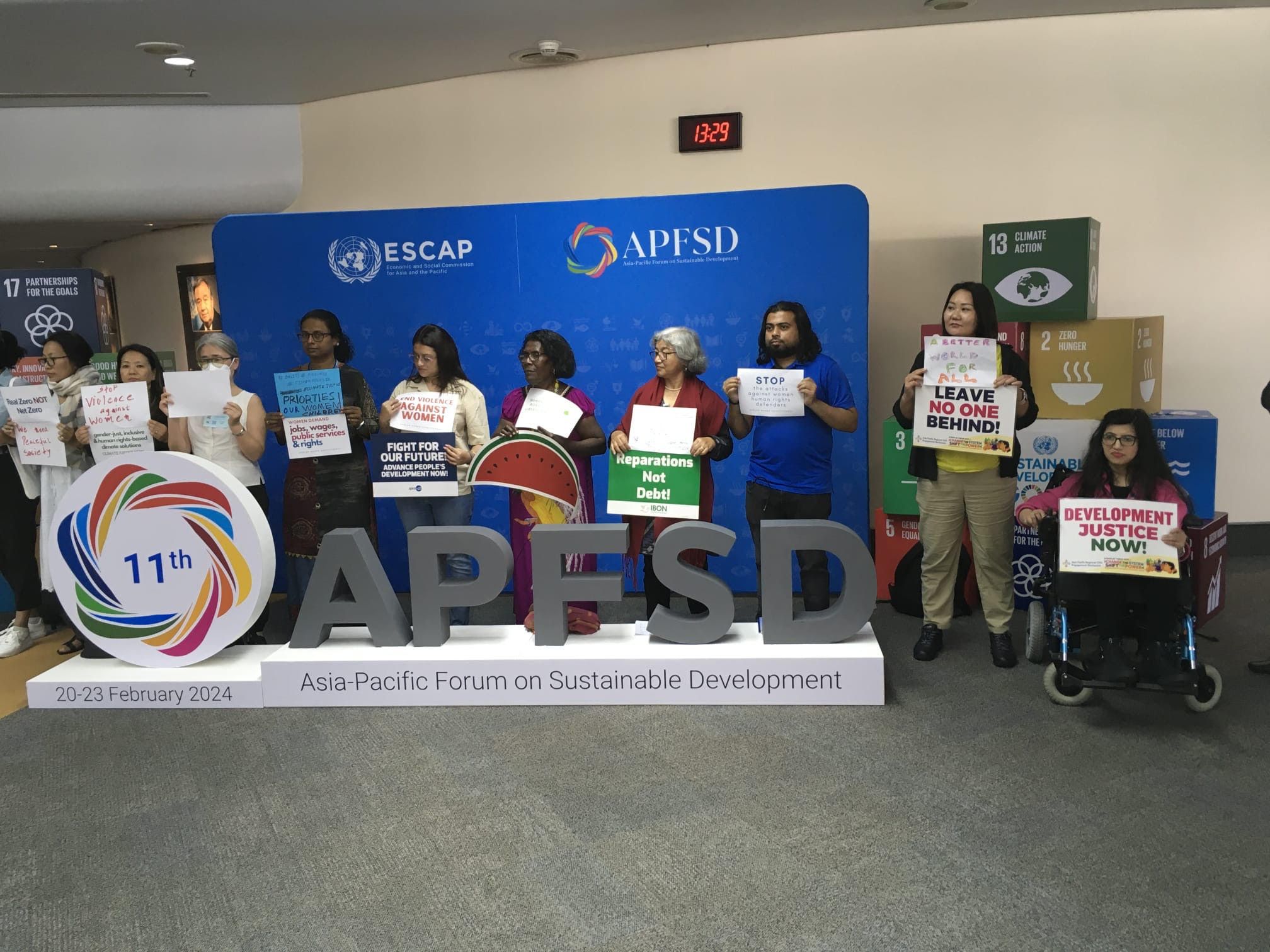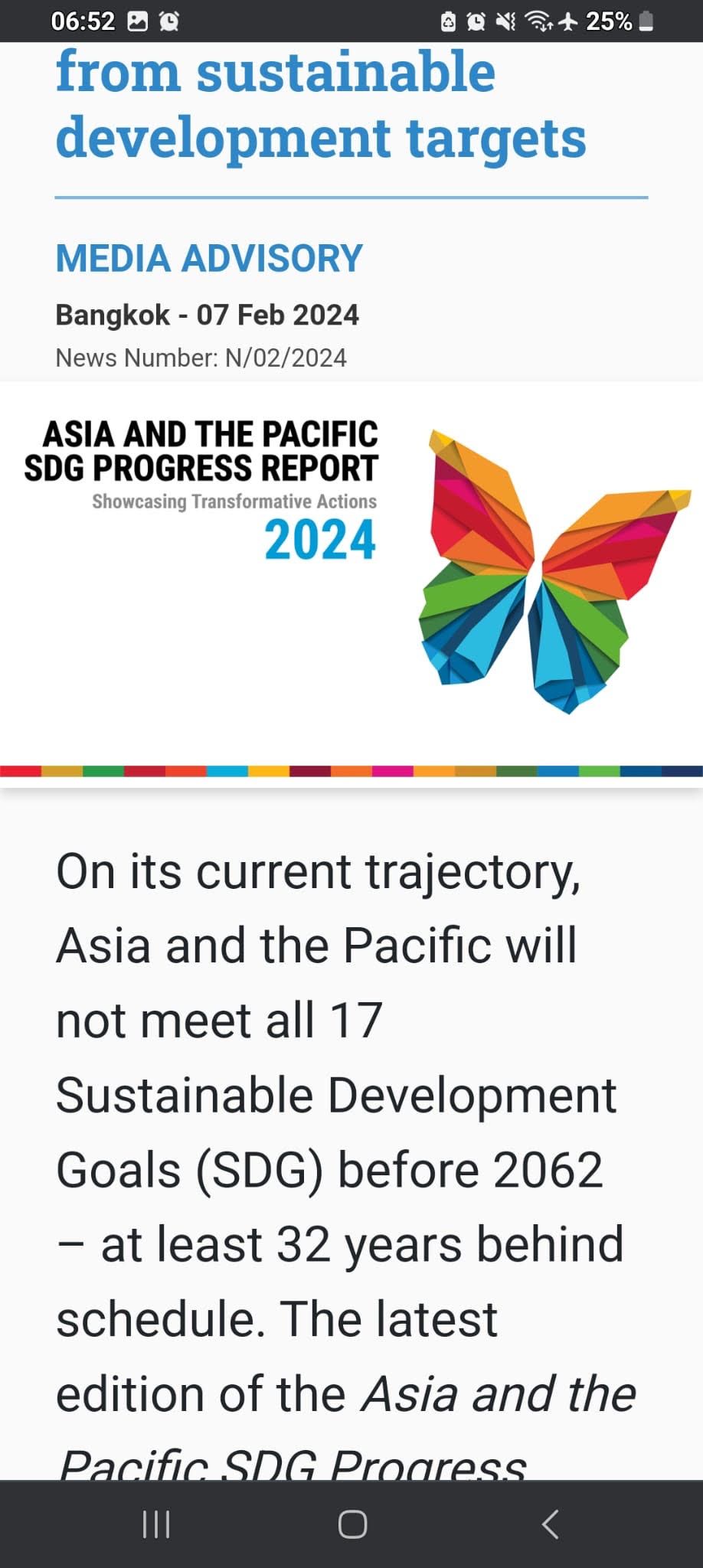Blog by Dr Donnell Davis, Programme Convenor, on SISEAP representation at the UNESCAP APSDF11 meeting held in Bangkok February 2024

Dr Donnell Davis, SISEAP Programme Convenor (R) lina Pancheva (SI Bangkok (L)
The United Nations Economic and Social Council for the Asia Pacific (UNESCAP) hosted the 11th Sustainable Development Forum in February 2024. One thousand people attended during the week including Youth Forum, formal roundtables, workshops, side events, a reception and a peaceful protest. The roundtables concentrated on the 2024 themes of poverty, hunger and climate interrelationships (SDG1,2,13) but always accompanied by the enabling SDGs 16 and 17 for good governance, strong institutions and financial partnerships. The outcomes document is our joint
contribution to the High Level Political Forum in New York in July 2024. However, our debates also contributed to other UN programs directions.
Only two representatives are allowed to participate for each UN ECOSOC accredited organisation.
Under the new UNESCAP protocols, SISEAP requires accrediation in its own right. We were represented by Elina Pancheva (SI Bangkok) and myself as Programme Convenor. We attended every session and shared our findings across different roundtables. While Elina focussed on the food and climate sessions, I focussed on governance and financial partnerships. We both appreciated the panel sessions every plenary and structured session.
Highlights were the SDG report card on five Asia Pacific Regions performance. SISEAP are across two – The Pacific and South East Asia. Some countries are 32 years behind in SDG targets, while most countries lack some target data. Regression is seen in all climate targets across all regions. SDG 5 performance for women is variable, given stresses of climate, corruption, covid and costs of living. Food security has many facets – not just the climate impacts, agricultural productivity and land sovereignty, but in lack of accessibility to good nutrition, and in urban areas – unseen expenses and price gouging. Poverty presented in many ways like housing, children taken out of school, medical scams, financial stresses for rural and urban dwellers that triggers violence as a coping mechanism - as well as personal stresses where women are the last to be fed, educated or paid, especially for care work. The most vulnerable elders, children and people with disabilities were further disadvantaged when facing multiple crises. They are falling further behind, so UNDP calls on us to explore injustices that undermines all good intentions. They have 5 techniques that we could adopt. Guy Bernard Ryder (UN Under Secretary General Policy) launched ‘The Pact for the Future’ as a major reform effort because the 1946 and 1948 UN declarations may no longer be fit-for-purpose. They have served many generations, but how do we codify language and laws to cater for 7 future generations (the way indigenous peoples did). Already an Office for Youth was established so that young people can consider our legacy while catering for unborn children in their resolutions. The Asia Pacific NGOs gave blunt review of the five chapters that shape our foreseeable future (underpinning values for ethical decision making, peace and diplomacy, global digital compact, emerging AI, youth shaping future in law and implementation, public participation and universal basic wage, global governance including sovereignty of outer space. Soroptimists should overlay our gender lens on all chapters. Each of the panel sessions brought innovative perspectives, technology and partnerships across borders and sectors. ADB is 50, refining focus on feminist finance and climate action at community level for greatest impact. The Feminist Development Justice panel shared unsustainable development, the gig economy for women, alternative trials for safety nets (ILO), the power of education for confidence and flexibility for girls – including STEM, new reporting regimes, the impact of pollution and extractive industries of on health (private profiteering built on social loss), and business and governments social license to operate. All countries benefit from better education, more female participation in the paid workforce, and opportunities for impactful entrepreneurship. Some women will lodge joint responses from our workshop to HLPF and Pact for the Future. SDG11 Mini UNESCAP APSDF11 overview relies on community to implement a third of SDG targets, government one third, and the other third in collaboration. This translates to women leading those action in many communities.
Soroptimist actions
Soroptimists can build stronger relationships in the regions with new UN Residency roles, and pledges by national and local governments to invest in blue and green bonds for highest impact for a fairer future.
Dr Donnell Davis

silent demonstration
